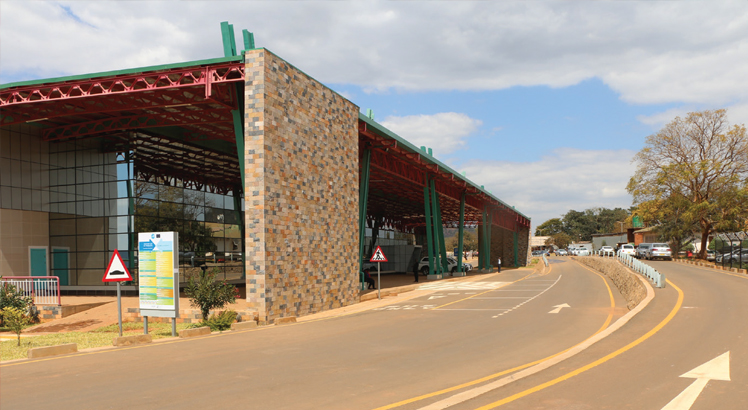Exposing the plight of Malawi’s dairy sector
Notable developments in Malawi’s dairy sector started in 1960s when government, through the Malawi Milk Marketing Project, started organising dairy farmers into milk bulking groups to act as hubs for milk bulking and collection.
Milk is a highly perishable product with high susceptibility to zoonotic healthy risks; hence, establishment of these centres provided a first line of defence for screening out sour and adulterated milk from the value chain. This was critical in eliminating potential hazards to public health.

Further, a piece of legislation was enacted in 1972 that read: “The distribution of milk and other dairy products in the cities of Blantyre, Lilongwe and Mzuzu and municipality of Zomba shall be limited to products pasteurised and processed in licensed dairy plants”
Automatically this criminalised any selling of the unprocessed milk in the mentioned cities.
Despite the restriction, this marketing arrangement ensured readily available markets for dairy farmers and provided a money-saving mechanism since Malawi Dairy Industries (MDI), which had processing plants in Blantyre, Lilongwe and Mzuzu, was making a lump-sum payment for all the monthly milk collections from the bulking groups.
Since the government took the lead, the industry also experienced mammoth investments in, among others, animal breeding, extension services and milk handling facilities thereby ensuring smooth functioning of the value chain. A good start it was! And Malawi’s fledgling dairy sector was full of promises to both the farmers and consumers.
Prospects could envisage a self-sustaining and vibrant dairy sector with increased household milk consumption, strong market linkages of dairy farmers and scaled up commercialisation of the entire value chain.
But Alas! Despite that Malawi’s dairy sector is almost five decades old now; the whole value chain seems to remain in its infancy. Average milk production per cow is lowest, per capita milk consumption is far below threshold, milk processors operate at half capacity, and producer prices are mediocre. This is the situation despite that the sector has been injected with mammoth investments from the government, donor agencies and other development partners.
This dire and sorry state can hence prompt one to wonder what has yoked and condemned the once promising sector to stagnation and sluggishness. A lot of explanations have previously been provided based on areas of expertise and backgrounds of the authors. However, there is one critical explanation which has not been explicitly highlighted over the years; Malawi’s dairy sector is seriously crippled with market failures and market imperfections where by milk processors are ripping off the sector at the expense of both farmers and consumers. This may sound like a strong allegation and wild accusation but my argument is solely based on empirical data, literature and real testimonies from various players of the sector.
It all started in 1997 when MDI was privatised and private processing companies took over operations of milk processing plants in all three regions of the country. Being private players they concentrated on what economic theory describes them best. That is to maximising profits.
You may agree with me that competition in any other sector is imperative for its good well-being. Competition does not only promote efficiency along the value chain, but also ensures enterprising culture, widens consumer choice, encourages innovation and provides goods and services to consumers at the lowest price possible. This is not only beneficial to the sector alone but even to the whole economy.
But what is currently happening in Malawi’s dairy sector? If we are to go by what the literature and reality on the ground says, the sector is dominated by few milk processors who collude and have strong buying and selling powers over the industry.
Simply put, despite that we privatised the dairy industry to create competition and earn efficiency, few and powerful processors dominate the industry. Milk prices in Malawi are solely determined by the milk processors both at farm-gate and retail outlets.
The implication has been that dairy farmers have been getting a raw deal while consumers face exorbitant prices. That is a big mistake for the growth of the sector. Economists can agree with me that, in any market, price does not only determine exchange of commodities, but also influences performance of the whole sector. How can rural poor Malawians consume more milk when retail prices are prohibitive? How can the dairy supply chain get commercialised when farm-gate prices are lowest in the region? And what can motivate farmers to produce good quality milk when they are getting below-cost, one-size-fits-all prices?
Milk processors have always complained that farmers are selling them poor-quality and adulterated milk. But honestly! How can a farmer produce top-notch quality milk when he/she is going to get the same price as another farmer who has just met minimum quality standards? Though not to justify crookedness, we now have to accept that farmers are ration beings also. They act in accordance to how the system treats them. If we give them cabbage we should expect salad from them. Not fish fillets!
Try to change how the value chain operates and you can appreciate how the same farmers can compete to produce premium quality milk once they start getting awarded for producing good quality milk. After all! Good quality milk means extra feeding costs and apt management. All these tremendously add to the farmer’s cost of production hence the need for the farmer to be compensated handsomely.
However, low and pan-territorial pricing is not the only impediment facing the farmers. Literature is awash with lamentations of poor milk collection schedules by milk processors, defaulted payments for milk collected at milk bulking groups and non-compliance to contractual agreements. All these atrocities are left unpunished and still prevail in the industry.
And there is this fallacious statement on why milk consumption in Malawi is low. We have been made to believe that “Malawi is not a milk consuming nation”. I find this statement to be not only deceptive but also hilarious. Go to tea rooms in rural areas and see for yourself how a “cup of tea with milk” tops the menu both in terms of price and demand. Or try to call some relatives from the village to stay for a while at your home. I challenge you, milk will be among the top three food items that will be depleted at a faster than normal rate.
This simply means that it is not true that Malawi is not a milk consuming nation. But rather that milk in Malawi is expensive for ordinary citizens; hence, it is beyond the reach of the bigger proportion of the population. Unfortunately this is culminating into calamitous ripple effects to the general well-being of the population as Malawi continues to struggle with malnutrition, stuntedness and myriad malnutrition disorders.
Surprisingly, milk processors have always feigned challenges too and they attribute the failures of the dairy sector to those challenges. They have always complained about limited supply of quality milk, high transport costs for milk collection, high utility bills, proliferation of powdered milk imports, and higher tariffs on milk processing ingredients and equipments.
As much as these complaints sound genuine, I find them to be lame and just seeking further protectionism. Who doesn’t know that good corporate citizenship demands that companies should pay taxes? And that competition is what is driving the current liberalized global world. It is therefore imperative that firms should be vigorous in production efficiency and market research for them to survive. It is time for the milk processors to raise their game by finding cheaper ways of processing milk without trampling on other players in the value chain.
Why should the imported dairy products be cheaper than the locally processed ones?
So let us turn a deaf ear to the complaints from the milk processors. The whole dairy sector should not pay for their inefficiencies. To be honest enough, their behaviour can be well explained by microeconomic theory of the firm which clearly postulates that there is inefficient allocation of resources when the industry is dominated by very few and powerful firms. This result in higher consumer prices, lower producer prices, and reduced output levels that only target affluent segments of the population. Unfortunately this is what is happening with Malawi’s dairy industry.
My strong judgment is, therefore, that despite all the financial injections and project interventions, Malawi’s dairy sector will continue to stagnate if the status quo is to remain. Something seriously needs to be done if the sector is to be revamped. And whatever that something can be, it should involve bringing sanity to the marketing of the dairy products.
Convincingly, I feel that the only way we can fully resurrect the sector is to review the 1972 Milk and Milk Products Act so that we open up the selling of milk to other players in the value chain. Limiting distribution of milk and milk products to only products pasteurised and processed in licensed plants has proved to asphyxiate the industry. Let us borrow from what other countries such as Kenya are doing by formalising our dairy’s informal sector.
It is undeniable fact that 80 percent of Malawi’s milk is already being consumed through informal channels and the whole northern region has no commercial milk processor. Where do we expect farmers in this region to sell their milk? And how sure we are that milk processors from the other regions can adequately distribute their products to all corners of the region?
The current scenario demands that each and every one liter of milk from Karonga should be transported to Lilongwe for processing and transported back to Karonga for consumption. Is this sensible and economically viable?
Why can’t we support the farmers through their milk bulking groups to do localized selling of milk? This does not mean buying them milk pasteurising machines alone. They are very expensive and resources cannot allow. We can support the farmers with milk handling and testing facilities to ensure compliance to minimum quality standards.
Likewise we can continue training farmers and consumers on the need for proper handling of milk and the need for boiling it before consumption. I am even sure that development partners will support this course since the current legislation deems the informal sector as illegal hence nobody can support it under the prevailing conditions.
I know that the usual scapegoat of zoonotic threats to public health will be raised. But I believe Malawi has very competent and able technocrats who can help to liberate the dairy industry while being mindful of the public health risk concerns.
Dubai has poor soils and chaotic weather. But technocrats helped the country to construct the world’s tallest building. We go to school to be able to solve problems, anyway. Not to dodge them.
So our scientific knowledge should therefore not be used to rigidify a decision making process, but it should rather be used to smoothen it. A good captain does not cancel an important voyage because of mere risks. He uses his knowledge and experience to sail his ship safely against those risks. So let us pull up the anchor and go for an audacious voyage.
*Derrick Kapolo is a masters degree student in agricultural and applied economics at Luanar





